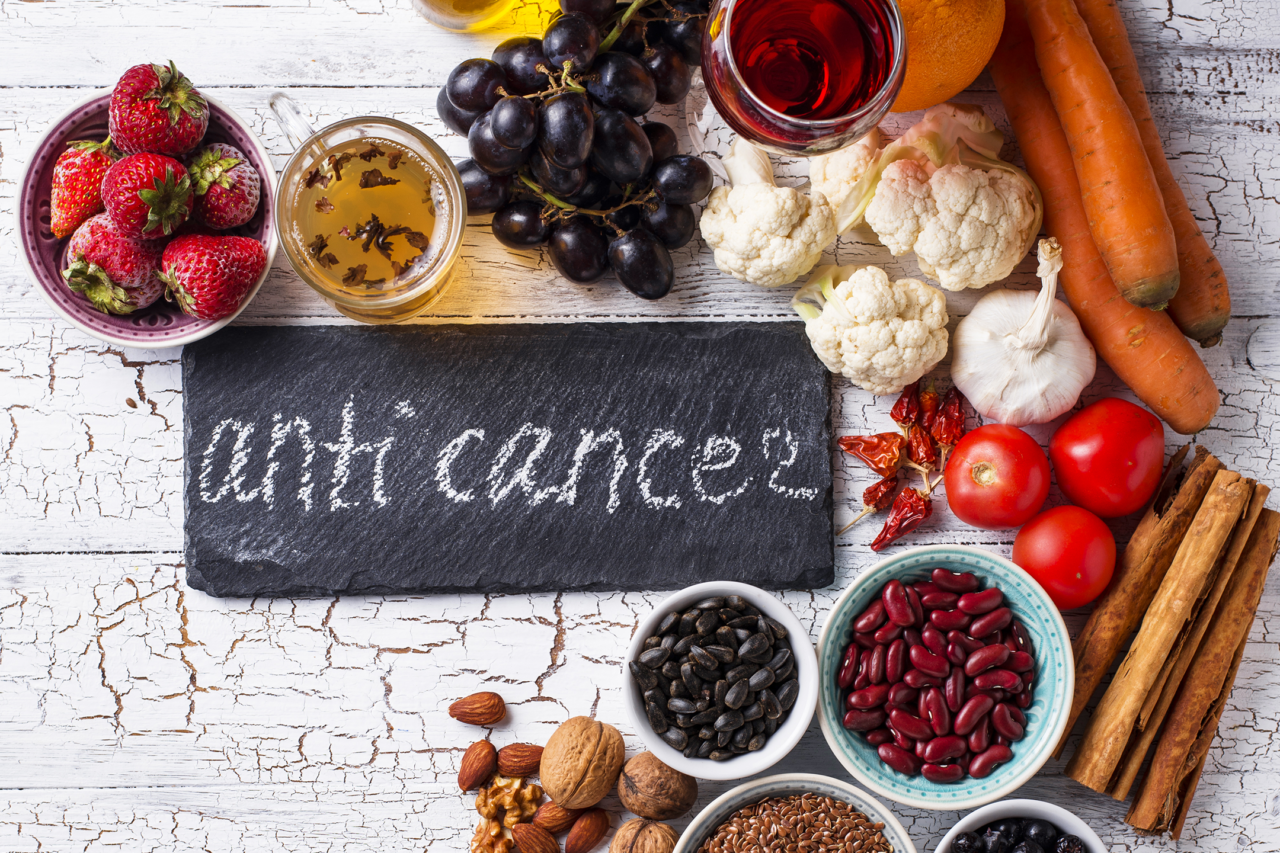 By Victor S. Sierpina, MD is the WD and Laura Nell Nicholson Professor of Integrative Medicine, Professor of Family Medicine at UTMB-Health and the John Sealy School of Medicine
By Victor S. Sierpina, MD is the WD and Laura Nell Nicholson Professor of Integrative Medicine, Professor of Family Medicine at UTMB-Health and the John Sealy School of Medicine
All disease begins in the gut. –Hippocrates
When it comes to cancer, what should I eat? Numerous resources now exist to help us sort through the challenges of how diet and cancer interact. Research in this field is notoriously challenging given the time frame for cancer development, the wide variety of food choices over decades, and genotypic, cultural, and geographic variations in diet.
In a recently published article, we addressed the importance of nutrition in the integrative oncology setting. Practical advice and solutions are offered on incorporating basic, healthy nutrition and special dietary prescriptions in the clinical consultation, including the role of dieticians. (1)
An umbrella term that best represents a healthy, cancer-fighting diet is the anti-inflammatory diet. Possibly the best exemplar is the Mediterranean diet which has many trans-cultural variations. It is well-evidenced to promote optimal health, including heart health, for those with cancer and cancer survivors. Indeed, more cancer survivors die of heart disease than cancer recurrence, to attention to both risk areas is essential.
Warning: Undefined variable $posClass in /home1/mjhnewsc/public_html/wp-content/plugins/ap-plugin-scripteo/lib/functions.php on line 1078
In her book, The Cancer Fighting Kitchen, Rebecca Katz, a Culinary Institute of America chef, offers an array of nutritious and delicious recipes and menu plans for those suffering from cancer. (2) Those at advanced stages of cancer or undergoing powerful therapies have special nutritional needs. They often have a loss of appetite and taste, nausea, vomiting, dry mouth, weight loss, and protein malnutrition, all of which weaken their immune systems and their body’s ability to fight off the ravages of cancer. Creative cooking with tasty broths, soups, smoothies, and other nutrient-dense foods can cheer, comfort, and nourish. Medical cannabinoids are also now available in Texas through the Compassionate Use Program to support nutritional care, treat nausea, anorexia, and pain in palliation for terminal cancer patients.
What do we know about foods that can help prevent cancer? In a chapter in Integrative Oncology, University of Arizona Professor of Public Health and registered dietician, Dr. Cynthia Thomson explores the epidemiology and risk reduction dimensions of diet and cancer. (3) While there is no single diet that fits everyone’s situation, some general principles, long advocated by the American Cancer Society, are:
Warning: Undefined variable $posClass in /home1/mjhnewsc/public_html/wp-content/plugins/ap-plugin-scripteo/lib/functions.php on line 1078
- Achieve and maintain a healthy weight throughout your lifetime
- Adopt a physically active lifestyle
- Eat a healthy diet, with an emphasis on plant sources
- If you drink alcohol, limit your consumption
See the American Cancer Society or the World Cancer Research Fund/American Institute for Cancer Research websites for more granular details.
A naturopathic method is described by Dr. Nasha Winters in The Metabolic Approach to Cancer. (4) This is a program including the ketogenic diet, sugar and cancer, attention to the microbiome, detoxification from environmental and food-related intakes, and much more. Consider getting a copy for a refreshingly new look at cancer care with a focus on nutrition.
Warning: Undefined variable $posClass in /home1/mjhnewsc/public_html/wp-content/plugins/ap-plugin-scripteo/lib/functions.php on line 1078
We know that vegetables, including beans, leafy greens, tomatoes, squashes, onions, and fruits, have many chemicals, such as flavonoids, carotenoids, fiber, vitamins, minerals, and additional bioactive substances that can help in preventing cancer. Whole grains have been found to lower the risk of colorectal cancer as well as an overall cancer risk.
Antioxidants and fiber play a prominent role in a healthy diet and are best taken in the form of foods rather than dietary supplements or nutraceuticals.
Other items in a healthy dietary pattern include healthy protein sources such as legumes, fish, and poultry and lower in red and processed meats. Unsaturated fats such as avocado and olive oil are health-promoting. Recommendations from the ACS and WCRF/AICR limit saturated fats, trans fats, the excess calorie intake of highly processed foods, added sugars, and low-fiber, and high-fat foods.
Some specific foods or food groups seem to be particularly helpful. Cruciferous vegetables are well known for cancer-preventive properties. These include cabbage, broccoli, especially broccoli sprouts, cauliflower, kale, brussels sprouts, bok choi, and others. Carotenoids are abundant in colored foods such as carrots, squash, mango, cantaloupe, sweet potatoes, tomatoes, and berries. Curcumin is anti-inflammatory and helps arrest the cell cycle growth of cancer cells. Green tea is also anti-inflammatory.
So now, instead of just telling a cancer patient to “eat a balanced diet,” we now have multiple resources and research to help them tailor their diet and nutrition to optimize their health.
References
- Frenkel M, Sapire K, Lacey J, Zollman C, Sierpina V. “What Should I Eat?”—Addressing Questions and Challenges Related to Nutrition in the Integrative Oncology Setting. Current Oncology Reports. July 5, 2022
- Katz, R. The Cancer Fighting Kitchen. https://www.rebeccakatz.com/the-cancer-fighting-kitchen
- Abrams D, Weil D. Integrative Oncology. Thompson C. Ch 5 Diet and Cancer: Epidemiology and Risk Reduction. Block K, Ch 6 Nutritional Interventions in Cancer. Oxford University Press, 2014.
- Winters N, Kelley JH, The Metabolic Approach to Cancer. Chelsea Green Publishing, 2017


